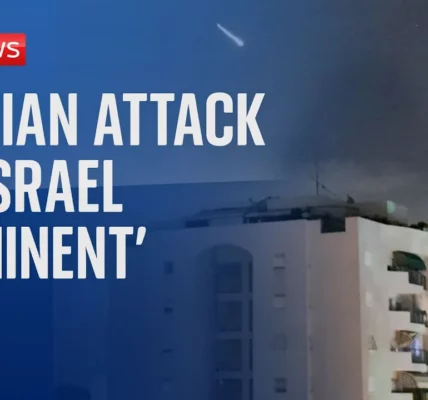Hezbollah Launches Hundreds of Rockets Towards Israel: Escalation in the Middle East

This article explores the recent surge in hostilities between Hezbollah and Israel, detailing military actions, the international response, and the implications for regional stability and civilians caught in the crossfire.
Introduction
The ongoing conflict between Hezbollah and Israel has reached a critical juncture, marked by a series of military strikes and retaliatory actions. This escalation is not merely a bilateral issue; it reflects deep-seated tensions in the Middle East and poses significant risks for regional stability. As both sides engage in strikes, we explore the implications of this latest round of violence, the humanitarian impact on civilians, and the broader geopolitical ramifications.
The Escalation of Hostilities
On a recent evening, Hezbollah launched over 320 rockets towards Israel in response to Israeli airstrikes targeting military installations in southern Lebanon. This dramatic escalation follows the assassination of a key Hezbollah commander, which has intensified the group’s commitment to retaliatory action.
Hezbollah’s Military Actions
Hezbollah’s response was characterized by a coordinated effort to strike multiple military bases in Israel. The group claimed that its operations were aimed solely at military targets, declaring success in their counteroffensive.
Israel’s Preemptive Strikes
The Israeli Defense Forces (IDF) reported that their preemptive strikes were based on intelligence suggesting an imminent attack from Hezbollah. The IDF launched extensive airstrikes, deploying F-16 and F-35 fighter jets to neutralize the perceived threat. This action included:
- Destruction of missile and rocket launch sites.
- Targeting key military infrastructure to diminish Hezbollah’s operational capabilities.
The Humanitarian Impact
The ongoing conflict has left southern Lebanon and northern Israel in a state of fear and uncertainty. Many civilians have fled their homes, leading to ghost towns in previously bustling communities.
Displacement and Fear
Residents in both southern Lebanon and northern Israel are facing the harsh realities of war. Families are being displaced, with many seeking refuge in safer areas. The psychological toll on these communities is immense, as children and adults alike grapple with the sounds of explosions and the specter of violence looming over their lives.
International Response
In light of this escalation, diplomatic efforts are underway to mitigate the conflict. Key international figures, including the UN Secretary-General, have issued stark warnings about the need to avoid all-out war. The presence of U.S. military assets in the region adds another layer to this complex geopolitical situation, as the U.S. seeks to stabilize its allies while managing its interests in the Middle East.
Broader Geopolitical Implications
This latest round of conflict between Hezbollah and Israel is indicative of the broader regional tensions influenced by Iran’s involvement in supporting Hezbollah. The potential for miscalculation on either side raises concerns about a wider regional conflict.
Iran’s Role in the Conflict
Iran’s backing of Hezbollah complicates the situation further. The U.S. has expressed concerns over Iran’s military support, which could embolden Hezbollah to engage more aggressively with Israel, potentially drawing in further international actors.
Future Scenarios
As both sides continue to exchange fire, the potential for escalation remains high. Analysts warn that without effective diplomatic interventions, the region could spiral into a larger conflict involving multiple state and non-state actors.
Conclusion
The situation between Hezbollah and Israel remains highly volatile, with recent military actions highlighting the risks of an all-out war. As international leaders call for restraint, the humanitarian impact on civilians continues to grow. It is crucial for diplomatic efforts to take precedence in order to restore stability and prevent further loss of life. For those interested in staying informed, follow our coverage for updates on this evolving situation.
“`




